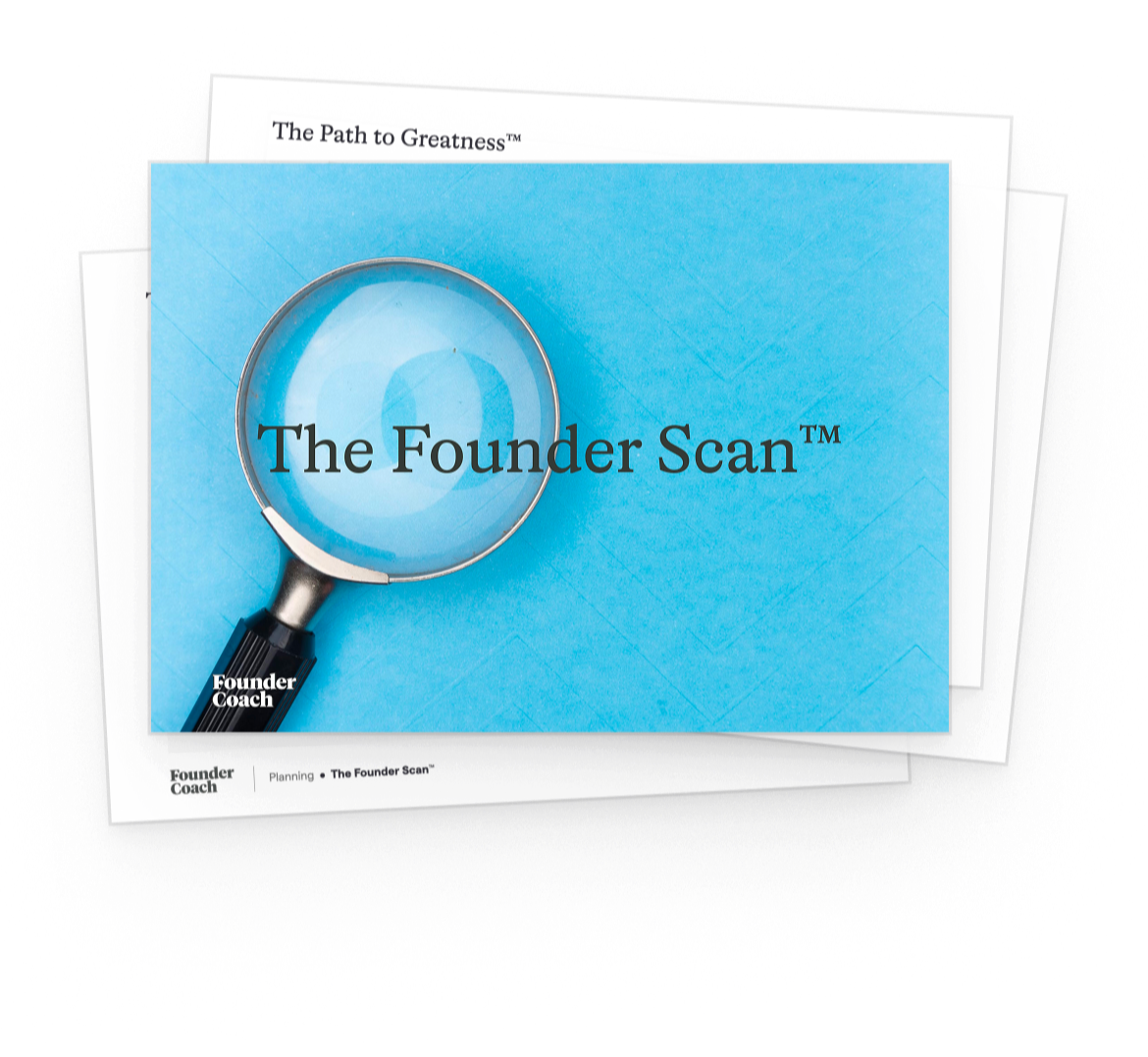Best CEO Peer Groups in 2025 (And How to Choose the Right One)

As a CEO, you face challenges that only other CEOs truly understand. Whether it’s the loneliness of leadership, the weight of making bold decisions, or the constant demand to scale both yourself and your business, having a trusted group of peers can make all the difference. That’s where CEO peer groups come in.
In this guide, we’ve curated the 8 best CEO peer groups for 2025, so you can find the right one to support your growth as a leader—and as a person.
Why CEOs Don’t Join Peer Groups
Let’s be honest—most CEOs don’t leap into peer groups right away. Even the ones who could benefit the most often hold back. Why?
- Time scarcity: Every minute counts. When your calendar is packed, another meeting can feel like a luxury you can’t afford.
- Skepticism: You’ve probably been to enough networking events to know that not every group delivers on its promise. CEOs often wonder, “Will this be worth it?”
- Stage mismatch: One of the most common frustrations is being grouped with leaders who aren’t facing the same challenges—either because they’re ahead or behind.
- Vulnerability concerns: Leading a company can be lonely, but dropping the armor in front of peers doesn’t come easy.
These are real concerns. But when a peer group is thoughtfully curated and well-facilitated, the upside is massive.
The Benefits of a Strong CEO Peer Group
The best peer groups don’t just offer camaraderie—they become strategic assets. Here’s what great ones do:
- Clarity: You see your thinking more clearly by hearing others reflect it back.
- Confidence: You test ideas in a safe space before bringing them to your exec team or board.
- Relief: You realize you’re not the only one navigating pressure, complexity, and self-doubt.
Speed: You shortcut mistakes by learning from others’ real-world experience. - Structure: You build routines and rituals that make you a stronger, more consistent leader.
What to Look For in a Great CEO Peer Group
Not all peer groups are created equal. Here are the key criteria to consider:
- Curation: Are members at a similar stage and ambition level?
- Format: Is it structured (with facilitation and accountability), or more casual?
- Support: Does it combine peer support with expert guidance?
- Stage fit: Does the group match your company’s size, funding, and goals?
- Industry fit: Are the members in your specific industry?
And here’s one you might not expect:
- Shared Practice: Do members use a common language or system to help each other implement, not just talk?
With that lens, let’s explore the top 8 peer groups for CEOs.
1. YPO (Young Presidents’ Organization)
YPO is a global leadership community of young chief executives with over 30,000 members across 140+ countries. It brings together high-achieving CEOs to connect, learn, and grow through confidential forums and leadership development experiences.
- Ideal For: CEOs under 45 running companies >$10M revenue
- Format: Global chapters, monthly forums, curated learning events
- Why It Stands Out: YPO is one of the oldest and largest CEO networks in the world, with over 30,000 members globally. It offers a legacy brand, polished structure, and high-trust forums facilitated by trained moderators.
- Consider If: You want access to an elite, international CEO network with global reach.
- Watch Out For: It’s quite traditional in its approach—and many tech CEOs find it less relevant to the pace and challenges of scaling a venture-backed startup.
2. Founder Coach
Founder Coach is a fast-growing leadership platform and peer group community for venture-backed tech CEOs. Combining a structured coaching model, a shared leadership framework, and curated peer groups, it’s designed to help founders scale themselves and their companies.
- Ideal For: Founders & CEOs of venture-backed tech companies (Series A to unicorn)
- Format: Peer groups + 1:1 coaching + structured systems and tools
- Why It Stands Out: Founder Coach isn’t just a peer group—it’s a community of practice. Members don’t just talk about their challenges; they use a shared model to help each other implement. Everything is built around the Founder Leadership Model—a repeatable system for scaling yourself, your team, and your company.
- Consider If: You’re scaling a tech company, feel stuck in the weeds, or want a leadership system that grows with your business.
- Watch Out For: It’s selective—and works best if you’re ready to do the work, not just swap stories.
3. EO (Entrepreneurs’ Organization)
EO is a global network of entrepreneurs that helps members grow through peer-to-peer learning, once-a-month forums, and curated local events. With 18,000+ members in 60+ countries, it's one of the most accessible peer networks for small to mid-sized business leaders.
- Ideal For: Founders with $1M+ revenue seeking local support
- Format: Local chapter forums, monthly peer groups, learning events
- Why It Stands Out: EO offers a broad, accessible network with strong local chapters around the world. Monthly forums create consistent rhythm and support.
- Consider If: You want local accountability and community with fellow entrepreneurs.
- Watch Out For: Less tailored to venture-backed founders or high-tech businesses.
4. Reboot.io
Reboot.io is a coaching and leadership development company that runs peer groups for startup founders seeking personal growth. It's best known for blending practical business experience with deep inner work, helping leaders become more self-aware and emotionally grounded.
- Ideal For: Founders and conscious leaders who want to do deep inner work
- Format: Coaching-led peer circles, offsites, leadership training
- Why It Stands Out: Reboot is where founders go to do the emotional and existential work of leadership. Think therapy meets leadership coaching—with startup wisdom baked in.
- Consider If: You want a founder peer group that emphasizes reflection, self-awareness, and vulnerability.
- Watch Out For: Not everyone wants this level of emotional depth or introspection.
5. Hampton
Hampton is a private, invite-only community for founders and execs of fast-growing companies. Founded by Sam Parr (of The Hustle), Hampton offers curated peer groups, in-person gatherings, and a no-fluff Slack environment focused on real talk among builders.
- Ideal For: 7-figure+ founders and operators
- Format: Curated peer groups, private Slack, in-person meetups
- Why It Stands Out: Founded by Sam Parr (The Hustle), Hampton is growing fast and known for its radical candor and real talk. No investors allowed—just builders.
- Consider If: You want real talk with peers who get it.
- Watch Out For: It doesn’t offer a structured model or unified coaching system.
6. Vistage
Vistage is one of the oldest CEO peer group organizations, serving over 25,000 members globally. Focused on mid-market and small business leaders, it provides monthly group meetings facilitated by experienced chairs, combined with one-on-one executive coaching.
- Ideal For: CEOs of SMBs and mid-market businesses
- Format: Monthly peer groups, 1:1 coaching, expert speakers
- Why It Stands Out: With over 25,000 members globally, Vistage has been facilitating CEO peer groups for decades. It blends accountability with tactical coaching.
- Consider If: You’re running a services or traditional business and want battle-tested insight.
- Watch Out For: May not fit if you’re in venture tech or seeking a faster-paced environment.
7. The Grand
The Grand is a peer group platform designed to support founders and leaders through personal and professional transitions. It combines structured group coaching with a strong focus on mental health, career clarity, and emotional resilience.
- Ideal For: Founders and execs navigating personal + professional growth
- Format: Peer groups with coaching, mental health + leadership focus
- Why It Stands Out: The Grand blends peer connection with a strong emphasis on mental and emotional well-being—especially valuable for startup leaders under pressure.
- Consider If: You’re looking for support that goes beyond business.
- Watch Out For: It may be less suitable for CEOs focused purely on tactical business growth.
8. Forum (Village Global)
Forum is a curated peer group program run by Village Global, a venture capital firm backed by world-class entrepreneurs like Bill Gates and Jeff Bezos. Forum connects early and growth-stage founders in small groups to build deep relationships and exchange hard-won insights.
- Ideal For: Venture-backed founders at early to growth stages
- Format: Small curated groups + retreats, backed by Village Global
- Why It Stands Out: With LPs like Gates and Bezos, Village Global’s Forum offers intimate peer circles, high-value connections, and access to seasoned founders.
- Consider If: You’re looking for tight-knit support plus investor perspective.
- Watch Out For: It’s invite-only and less visible, so access may be limited.
Common Issues with Peer Groups
While peer groups can be transformative, many fall short due to a few recurring issues:
- Inconsistent attendance: CEOs are busy, and when members don’t show up consistently, the group loses its momentum.
- Stage mismatch: If you’re growing faster than your peers, you may quickly outpace the group’s relevance and value.
- Poor group chemistry: If the group doesn’t gel or lacks vulnerability, it can fizzle out.
- Too many members: Large groups mean long meetings—or less airtime per member, reducing impact.
Founder Coach peer groups are designed to solve these issues. Groups are re-curated monthly to ensure high relevance, with just four CEOs per group—ensuring depth, accountability, and value from every session.
What About VC Peer Groups?
Many venture capital firms now run peer groups as a way to “add value” to their portfolio founders. While well-intentioned, they often fall short:
- It’s not their core competency. Most VCs aren’t trained facilitators or leadership experts.
- Feedback is mixed at best. Without structure, VCs often overstep or underdeliver.
- Conflict of interest. It’s hard to be fully open in a group your investor runs—their presence can subtly (or not-so-subtly) shape what gets shared.
In contrast, independent communities like Founder Coach exist solely to support CEOs—not their cap table. That difference matters more than most founders realize.
What Should You Talk About in a CEO Peer Group?
A great peer group isn’t just about who’s in the room—it’s about what you bring to the table. The most impactful conversations often center around:
- Strategic decisions you're struggling with
- Team dynamics or hiring challenges
- Execution gaps or performance dips
- Shifts in your role as CEO
- Emotional blockers like fear, burnout, or imposter syndrome
To get the most out of your sessions, it's crucial to arrive with clarity on your biggest leadership questions.
Take the Founder Scan — a short diagnostic designed to help you uncover your next leadership focus. It helps you identify which conversations will have the most impact right now—and can inspire powerful, peer-driven insights in your next group session.
FAQs About CEO Peer Groups
What are CEO peer groups?
CEO peer groups are curated communities of company leaders who meet regularly to share challenges, get feedback, and grow together.
Are CEO peer groups worth it?
For many CEOs, they’re transformational—providing clarity, accountability, and deep connection.
How much do they cost?
Costs range from $5K to $60K+ per year, depending on the structure and depth of support.
What’s the best peer group for tech startup CEOs?
Founder Coach is uniquely designed for venture-backed tech CEOs, offering both strategic support and peer connection.
What’s the difference between EO and YPO?
YPO is larger, more structured, and requires higher revenue. EO is more accessible and locally grounded.

